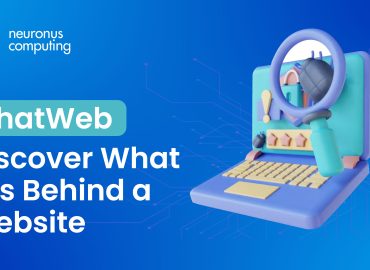Impact of AI on the job market
Introduction
Artificial intelligence has greatly transformed the digital landscape. Industries and businesses have benefited from its advantages. The automation features have relaxed many tedious and repetitive tasks. Data processing has become much faster and results have improved. But this development is now becoming threatening to the job market. According to the McKinsey Institute, more than 70% of businesses will adopt AI technology by 2030. This addition would decrease the share of expected employees in the job market.
The following articles discuss the deep impact of AI on the nature of jobs, the employment rate and the associated risks
Impact of AI
Undoubtedly, AI has transformed the traditional business model and brought ease to data processing. However, there is an imminent threat of AI taking human jobs, which is the major drawback of deploying artificial intelligence. The AI software market is set to increase by 134.8 USD by 2025, ensuring promise for business infrastructure. But the skills required to understand the complexities are not up to par. At the same time, heavy reliance on AI has reduced and increased the lack of employment for manual workers and less educated individuals. There is less technical education to understand the proper functioning of AI, which has also led to unemployment.

AI job replacement
Many research institutes have reported statistics about the impact of AI on job replacement. Forbes says that by 2025, almost two million manufacturing workers will be replaced. McKinsey Global Institute states that almost 14% of employees would need upskilling in their careers globally. This data is alarming as it poses serious concerns for fresh employees and job seekers. Here is a list of some professions and jobs that will be replaced by AI:
A. Customer Service Representative
Customer service plays a major role in connecting customers with the brand. The traditional setup required a whole team to answer people’s queries. The job itself was monotonous, as customers had similar concerns. Also, the 24/7 availability was hard to maintain. With AI bots, the whole department is reduced to a single piece of software with increased efficiency and scalability for the brand.
B. Accountants
Manual input of data is time-consuming and can involve many errors. The data is also hard to keep and maintain. With AI, data is automatically digitized without manually updating and keeping score. AI algorithms can also access, analyze and store data effectively. Data can also make relevant predictions based on the information provided and can be retrieved at any time.
C. Marketing or sales management
Social media platforms and applications have revolutionized the scope of marketing and branding. Each business has set up its social media profile to reach its desired audience. The algorithms push their content and paid ads perform the job of a sales rep. The traditional sales model is being replaced by social media marketers and specialists.
D. Research work
Research involves a large amount of data to be analyzed and processed. Powerful AI algorithms can handle and scrutinize data to a great extent. Data processing is more efficient in making predictions and suggesting alternative methods. Moreover, data is extracted more quickly and much time can be saved, enhancing production.

The future of the Job market
Experts have closely monitored the dynamics of the job market, with AI as a fierce opponent. The Future of Jobs Report 2023 has stated that in the next five years, 44% of workers will need to upgrade their skills. This is a possible pragmatic solution to avoid a surge in unemployment in the coming years. Individuals must be apt to the latest technology and trends for greater chances of employment.
Conclusion
To conclude, the danger of artificial intelligence is well understood and must be addressed. Experts and professionals have warned about the transformation of the job market. Traditional jobs will be replaced by smart algorithms and software. This would diminish opportunities for unskilled or low-skilled workers. However, through technical education, this gap can be bridged, as can the workforce. Where AI is revamping the job market, it has also given rise to more vacancies requiring more expertise. Hence, a complete knowledge of artificial intelligence can help in retaining jobs.







